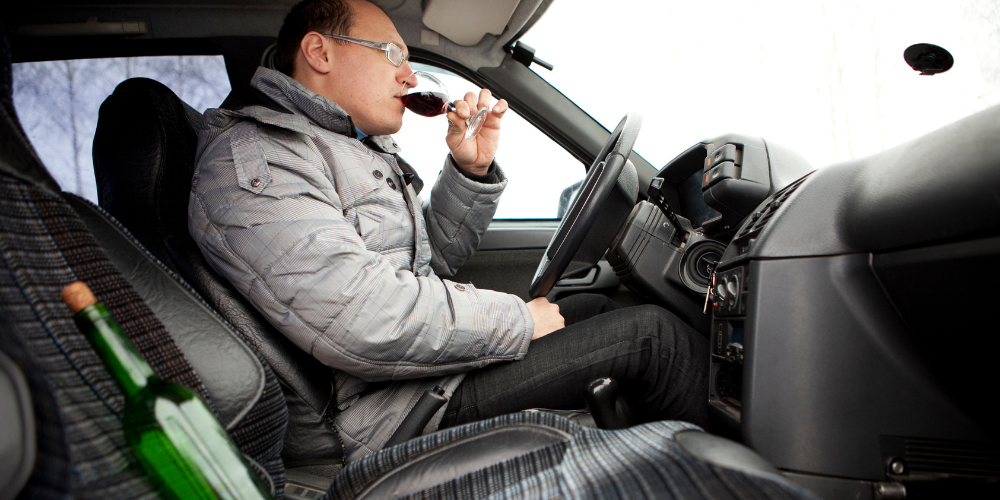It’s no secret that alcohol is a staple among many Americans. To some degree, alcohol is associated with happy feelings and positive events. Partying with friends, for example, usually involves casual drinking. A promotion at the office can call for a celebratory toast. Alcohol consumption also plays a standard role in socializing and building camaraderie, especially in an office setting. And while drinking alcohol seems fun, harmless, and normal, it can quickly and unexpectedly become a larger issue—one that can require intervention and outside support. There are numerous ways alcohol ruins lives and it’s important to always identify the negative traits associated with alcohol abuse.
Experiencing first-hand how alcohol ruins lives is difficult for family members or friends. AspenRidge AspenRidge Virtual Care offers support to individuals that need assistance with alcohol misuse. Our online alcohol addiction recovery programs make it easy for loved ones to find effective treatment without giving up family and work obligations. Contact us 24/7 directly at 720-650-8055.
The public, by and large, views alcohol abuse as a minor issue. For one, it’s legal and widely used. As a result, alcohol is viewed differently than other dangerous illicit drugs like heroin or methamphetamine, though death tolls suggest it’s just as dangerous if not more so. In fact, nationwide, alcohol is a leading cause of death. In fact, alcohol has been linked to overdose, fatal accidents, disease, and much more. In short, alcohol ruins lives.
Alcohol Abuse is Steadily Climbing
Rates of alcohol-related deaths have skyrocketed over the last couple of decades. According to the National Center for Health Statistics, in 1999 alcohol-related deaths totaled 36,000. The latest statistics from the Centers for Disease Control and Prevention indicate that in 2019, there were over 95,000 deaths directly caused by alcohol. Additional studies continue to see a rise in alcohol abuse, especially now in the wake of a global pandemic.
Alcohol Use Disorder (AUD) accounts for 7.2% (17 million individuals) of the U.S. population. The National Insitute on Alcohol Abuse and Alcoholism identified five subtypes of alcoholics that are commonly referred to when researchers and medical professional address AUD:
- Young Adult – 31.5% of U.S. alcoholics, young adult drinkers, with relatively low rates of co-occurring conditions, low rate of family alcoholism, and rarely seek help for patterned drinking
- Young Antisocial – 21% of U.S. alcoholics, mid-twenties, early onset of regular drinking, more than half have a history of family alcoholism, diagnosis of Antisocial Personality Disorder, more than one-third seek help for treatment
- Intermediate Familial – 19% of U.S. alcoholics, middle-aged, 50% have a history of family alcoholism, 50% with clinical depression, 25% seek help for treatment
- Chronic Severe – 9% of U.S. alcoholics, middle-aged, early-onset drinking issues, high rates of co-occurring disorders, 80% have a history of family alcoholism, two-thirds seek help for treatment
- Functional Alcoholic – 19.5% of U.S. alcoholics, middle-aged, well-educated, stable jobs and families, less than 25% seek help for treatment
The prevalence of alcohol abuse is astounding. The ramifications for continued abuse are clear; alcohol is closely linked to deadly diseases. But what are some other ways alcohol ruins lives? Can alcohol abuse treatment help people recover? Below are 7 ways in which alcohol ruins lives and treatment options that may prove to be critical for tens of thousands.
How Does Alcohol Ruins Lives?
For most, the onset of addiction doesn’t happen overnight but rather is gradual. Although it’s easier to spot the major problems that are linked to alcohol abuse, the smaller tell-tale signs can go unnoticed. In fact, alcohol may be impacting health, personal relationships, and wellness sooner than signs may indicate.
1. Alcohol Use & Physical Side Effects
Most people don’t choose to have a debilitating disease like alcohol addiction. Rather, an innocent distraction can quickly morph into a dependency issue. Unfortunately, there are serious physical issues that can cause a lifetime of suffering. Over time, alcohol can impact bodily functions in the heart, liver, and even the brain. Alcohol has been identified as the cause of more than 60 different diseases including throat, liver, heart, and brain. Heavier alcohol use, for all conditions, means a higher risk of disease or injury.
Even with the physical side effects of alcohol abuse, those battling with AUD can find it difficult if not impossible to stop. When someone develops a chemical dependence, the body’s tolerance builds up and it, then, requires more alcohol to achieve the same effects. Alcohol can easily ruin lives simply by its long-term health issues.
2. Alcohol Abuse & Job Performance
One primary way alcohol ruins lives are its impact on job performance. Drinking, when it transitions into a daily habit, can inevitably impact job performance. According to the statistics above, a good percentage of American’s with AUD are considered high functioning addicts. However, functional addiction doesn’t mean employees are productive. Workers may be going into work hungover or trying to operate while intoxicated. These can lead to deadly workplace accidents, underperformance, and even loss of employment. Inevitably, alcohol addiction can lead to people neglecting responsibilities and taking dangerous risks at a place of employment. According to the American Addiction Centers, workers with alcohol-related problems are nearly three times as likely to have injury-related absences.
Finding signs of alcohol abuse is critical and can include:
- Tardiness on a consistent basis
- A number of unexplained absences
- Lower levels of productivity
- Behavioral indications like hyperactivity, weight loss, slurring words, and odd behaviors
- Inconsistent performance
- Signs of paranoia or being defensive to criticisms or suggestions
- Dishonest behaviors like stealing, taking frequent unauthorized breaks
- Bloodshot eyes, hygiene issues, or personal appearance
3. Alcohol Ruins Finances
Addiction is a disease that slowly consumes a person. It can wreak havoc on the most unsuspecting victims and spiral out of control before treatment is even considered. One way alcohol ruins lives are its high cost. Consumption of alcohol is not a cheap habit to maintain, in fact, it’s been known to easily drain bank accounts. The financial toll may indicate a steady increase in spending on booze. Eventually, it may represent a disproportionate amount compared to income. For those suffering from heavy substance abuse, individuals may be spending half or more of their monthly income earnings.
Spending habits related to alcohol can trickle down and impact other areas of life. For one, alcohol expense may cause people to neglect other financial obligations like rent, bills, groceries, and even child support. Addiction is often associated with higher rates of poverty. Moreover, poverty and even homelessness may exacerbate the problems associated with alcohol. According to The National Coalition for the Homeless has found that 38% of homeless people are alcohol dependent.
4. Relationship Issues
Alcohol ruins lives by threatening relationships with friends, parents, children, significant others, and even work colleagues. Alcohol can influence destructive behavior and cause emotional instability. Studies by the National Institute on Alcohol Abuse and Alcoholism also suggest that alcohol may trigger mental illness and psychiatric disorders like anxiety, depression, paranoia, and bipolar disorder. Alcohol directly impacts the brain’s function and cause people to act irrationally or violently. In relationships, whether personal, professional, or romantic, alcohol can lead to abuse, neglect, emotional instability, dishonesty, and promiscuity. For any type of relationship, open and honest communication is essential. However, alcohol abuse can destroy relationships and lead to legal troubles, or abandonment of friends and family.
According to a study by the National Institute of Health, parents that abuse alcohol may have an insufficient ability to provide a safe environment for their children. Additionally, they face a higher risk of neglecting their children’s physical and emotional needs. Alcohol abuse has been shown to impact children’s cognitive, emotional, behavioral conditions. Not to mention, children from alcoholic households are more likely to abuse alcohol later.
5. Legal Issues
Facing legal issues is common among individuals who abuse alcohol. Alcohol, more than any other illegal drug, was found to be closely associated with violent crimes, including murder, rape, assault, and child and spousal abuse. In fact, 21% of state prisoners convicted of violent crimes committed them under the influence of alcohol alone. Alcohol and crime go hand-in-hand, but treatment is often nonexistent. Currently, only 11% of all inmates with addiction receive any treatment during their incarceration.
Approximately 77 million citizens, or one in three adults, have a criminal record. Having a criminal record can make it difficult, or even impossible for an individual to work. The result means millions are no longer in the workforce, costing the country’s economy upwards of $78 billion. A criminal history can ruin a life and prevent new opportunities in the future.
Drunk driving arrests are common among those who abuse alcohol. Sadly, drinking under the influence impacts communities and local economies nationwide. According to the National Highway Traffic Safety Administration (NHTSA), alcohol is to blame for nearly 30% of motor vehicle fatalities in 2015. In 2016, more than 1 million drivers were arrested for driving under the influence of alcohol or narcotics. Most states make a first offense DUI punishable with up to 90 days in jail.
6. Reckless Behaviors
Alcohol ruins lives because of behavioral impacts. Alcohol abuse impacts users’ behavior, which can result in accidents and violence. In the short-term, alcohol can cause slurred speech, motor impairment, confusion, and memory problems. These factors make drinkers more prone to accidents, injuries, and violent or unstable behavior. Additionally, scientists found that some people are genetically predisposed to reckless or impulsive behavior when under the influence of alcohol.
Alcohol is a disinhibitor. It effectively suppresses inhibitions in the brain, leaving us feeling more impulsive, less anxious, and less restricted. It can also amplify certain personality traits like aggression, confidence, and crudeness. Reckless behavior is often the catalyst for severe consequences. Poor decisions can cause accidents, health issues, and it can carry a high-risk for death.
7. Alcohol Abuse & Isolation
Seeking isolation when you have AUD is not uncommon. Alcohol addiction, although not always, is usually a gradual issue. It can progress into tolerance and then dependency. A person may even abandon his own family or friends in order to continue abusing alcohol in secret. Someone with AUD may seek a life of isolation for a number of reasons including:
- Denial
- Rejection
- Shame
- Anger
- Fear
An individual may also be suffering from an undiagnosed co-occurring mental health illness such as depression, social anxiety, or paranoid personality disorder. A lot of people who suffer from AUD experience intense feelings of loneliness. Serious health problems can go unnoticed—another way alcohol ruins lives. Additionally, mental health problems can become more severe, and major problems with socializing can worsen if a person becomes a reclusive alcoholic.
Alcohol Abuse Treatment with AspenRidge AspenRidge Virtual Care
The effects of alcohol addiction impact all areas of life. In general, alcohol ruins lives sometimes without notice or warning signs.
When people are ready to make a significant change and work toward a lifetime of sobriety, alcohol treatment centers are ideal. Gateway offers clients a full continuum of care, which means that clients can find the programs that best fit their needs, their health, and their schedules.
At AspenRidge AspenRidge Virtual Care, we offer people the most private way to get help for alcohol use disorder (AUD). We offer flexible schedules that fit people’s busy lives and we tailor treatment plans to address the specific needs of every individual. We also combine privacy and flexibility with professional individual and group therapy from our team of caring and licensed counselors. It’s a great alternative to traditional treatment at a hospital or outpatient facility. No driving, no chance of being seen going in or out. Just the help you need.
Clients can also expect to find a wide range of recovery strategies. From evidence-based to holistic, some of the most successful programs include:
- 6-Week AspenRidge Virtual Care Reset
- 12-Week AspenRidge Virtual Care Intensive Outpatient Program
- 12-Week AspenRidge Virtual Care Outpatient Program
Contact us directly at (720) 659-8055 for more information on our online treatment options.



















